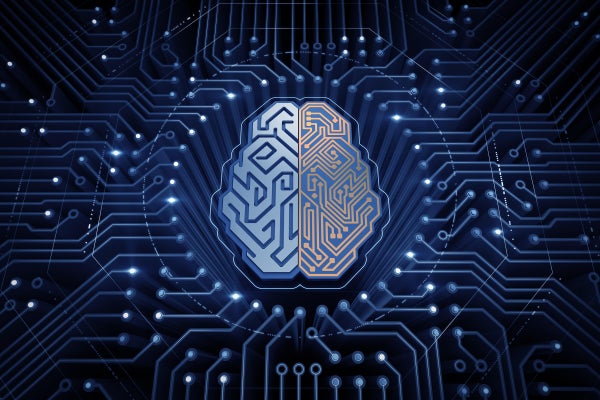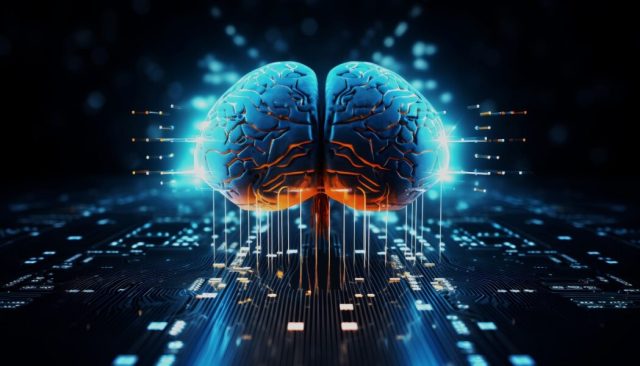Artificial Intelligence (AI) is no longer a futuristic concept confined to science fiction; it is a tangible presence in our everyday lives. From smartphones to smart homes, AI is revolutionizing how we interact with technology, reshaping industries, and transforming daily routines. This article explores the rise of AI in everyday life, examining its applications, benefits, challenges, and implications for the future.

Understanding AI: A Brief Overview
AI refers to the simulation of human intelligence in machines programmed to think and learn like humans. This includes processes such as problem-solving, understanding natural language, recognizing patterns, and making decisions. AI can be broadly categorized into two types: narrow AI, which is designed for specific tasks (like voice assistants or recommendation systems), and general AI, which aims to replicate human cognitive abilities across a wide range of tasks. Currently, the majority of AI applications fall under the narrow AI category.
AI in Personal Devices
One of the most visible impacts of AI is in personal devices, especially smartphones. Virtual assistants like Siri, Google Assistant, and Alexa have become ubiquitous, helping users manage their schedules, send messages, and even control smart home devices through simple voice commands. These AI-powered assistants utilize natural language processing (NLP) to understand and respond to user queries, making technology more accessible and intuitive.
Additionally, AI algorithms power personalized experiences across various applications. Social media platforms like Facebook and Instagram employ AI to curate content tailored to individual users based on their preferences, browsing history, and engagement patterns. This personalization enhances user engagement but also raises questions about privacy and the echo chamber effect.
AI: Transforming Ordinary into Extraordinary.
AI in the Home
The concept of a “smart home” has gained significant traction, largely due to advancements in AI technology. Smart devices equipped with AI capabilities allow homeowners to automate tasks and improve energy efficiency. For instance, smart thermostats like Nest learn users’ behaviors and preferences to optimize heating and cooling, reducing energy consumption and costs.
Security systems have also become smarter, with AI-enhanced cameras and alarms capable of recognizing faces and detecting unusual activities. These systems provide homeowners with real-time alerts and remote monitoring capabilities, enhancing security and peace of mind.
Moreover, AI-powered appliances, such as smart refrigerators and robotic vacuum cleaners, are changing the way we manage household chores. These devices can autonomously complete tasks, such as tracking grocery inventory, cleaning floors, or even suggesting recipes based on available ingredients, thus saving time and effort.
AI in Transportation
The transportation sector is experiencing a significant transformation due to AI, particularly with the development of autonomous vehicles. Companies like Tesla, Waymo, and Uber are at the forefront of creating self-driving cars that use AI algorithms to navigate roads, interpret traffic signals, and avoid obstacles.
While fully autonomous vehicles are still in the testing phase, AI technology is already improving traditional transportation methods. For example, AI is used in ride-sharing apps to optimize routes, reduce wait times, and match drivers with passengers more efficiently. Public transportation systems are also leveraging AI to predict passenger demand, streamline scheduling, and enhance safety measures.
Additionally, AI plays a crucial role in traffic management systems. By analyzing real-time data from cameras and sensors, AI can optimize traffic flow, reduce congestion, and minimize accidents. These advancements not only improve transportation efficiency but also contribute to reduced emissions and enhanced urban planning.
Revolutionizing Routine: AI at Your Service.
AI in Healthcare
The healthcare industry is one of the most promising fields for AI applications, with the potential to improve patient care, enhance diagnosis accuracy, and streamline administrative processes. AI algorithms can analyze vast amounts of medical data to assist healthcare professionals in diagnosing diseases and recommending treatment plans.
For example, AI-driven imaging technologies can detect anomalies in medical images, such as X-rays or MRIs, with remarkable accuracy. This capability not only accelerates the diagnostic process but also reduces the likelihood of human error. Additionally, AI can analyze patient records to identify trends and predict potential health issues, enabling proactive care.
Telemedicine has also benefited from AI integration. Chatbots and virtual health assistants can provide patients with immediate information and support, answering common questions and guiding them through the healthcare process. This technology improves accessibility to healthcare services, particularly in remote areas.
AI in Business and Customer Service
Businesses are increasingly adopting AI technologies to enhance operations and improve customer experiences. Chatbots and virtual assistants are commonly used in customer service to provide instant support, answer queries, and guide customers through transactions. These AI-driven solutions not only reduce response times but also free up human agents to handle more complex issues.
AI is also utilized in marketing and sales, allowing companies to analyze consumer behavior and preferences to create targeted campaigns. Predictive analytics enable businesses to anticipate customer needs and tailor offerings accordingly, leading to increased sales and customer satisfaction.
Moreover, AI plays a significant role in supply chain management. By analyzing data from various sources, AI can optimize inventory levels, forecast demand, and identify potential disruptions, leading to more efficient and cost-effective operations.
AI and Education
The education sector is embracing AI to enhance teaching and learning experiences. Intelligent tutoring systems can provide personalized learning paths for students, adapting content and pace based on individual performance and needs. This personalized approach fosters engagement and helps students grasp concepts more effectively.
AI can also assist educators by automating administrative tasks, such as grading assignments and tracking student progress. This allows teachers to focus more on instructional activities and provide personalized support to their students.
Additionally, AI-driven platforms can analyze vast amounts of educational data to identify trends and insights, enabling institutions to improve curriculum design and student support services.
Challenges and Ethical Considerations
Despite the numerous benefits of AI in everyday life, its rise is not without challenges and ethical considerations. One of the primary concerns is the potential for job displacement. As AI technologies become more capable, there is a fear that many jobs could become obsolete, particularly in sectors like manufacturing, transportation, and customer service. While AI can create new job opportunities, there will likely be a transitional period that requires workforce retraining and reskilling.
Another significant concern is privacy. The vast amounts of data collected by AI systems raise questions about how that data is used and protected. Instances of data breaches and misuse of personal information highlight the need for robust privacy regulations and ethical guidelines surrounding AI deployment.
Moreover, AI systems can perpetuate biases present in their training data, leading to unfair or discriminatory outcomes. It is crucial for developers and organizations to address these biases and ensure that AI technologies are designed and implemented responsibly.
Embracing the Future: AI in Every Moment.
The Future of AI in Everyday Life
As AI continues to evolve, its impact on everyday life is expected to deepen. Emerging technologies such as machine learning, natural language processing, and computer vision will drive further innovations, making AI an even more integral part of our lives.
In the coming years, we can anticipate more seamless integration of AI into various aspects of daily routines. Smart homes will become smarter, personal assistants will become more intuitive, and industries will leverage AI for enhanced decision-making and efficiency.
However, it is essential for society to navigate this technological landscape thoughtfully. Balancing innovation with ethical considerations, privacy concerns, and workforce implications will be crucial as we embrace the rise of AI.
Conclusion
The rise of AI in everyday life is a transformative phenomenon that is reshaping how we live, work, and interact with technology. From personal devices to healthcare, transportation, and education, AI is enhancing convenience, efficiency, and personalization in various domains. While the benefits are substantial, it is essential to address the challenges and ethical considerations that accompany this technological evolution.
As we look to the future, the continued development and responsible implementation of AI will determine how it shapes our lives. Embracing the potential of AI while ensuring ethical practices will pave the way for a future where technology enhances the human experience and empowers individuals in their daily lives. The rise of AI is just beginning, and its implications will continue to unfold in ways we are only beginning to understand.






